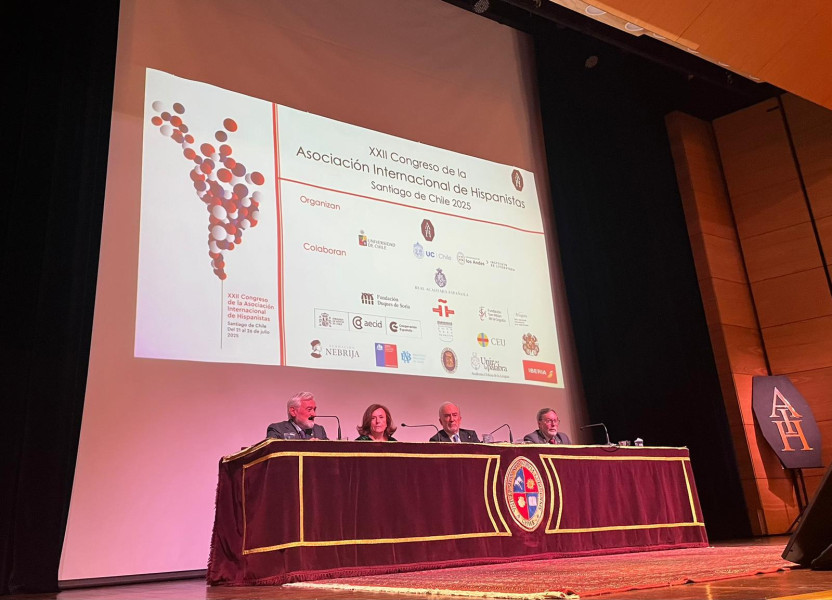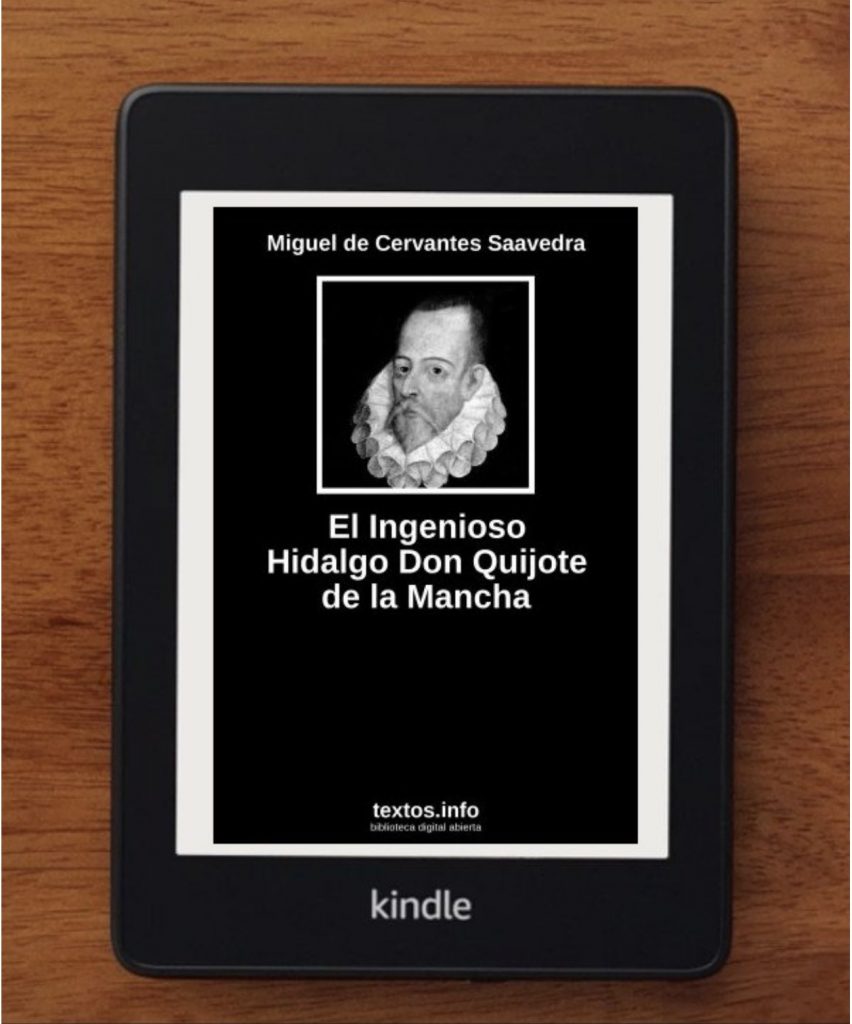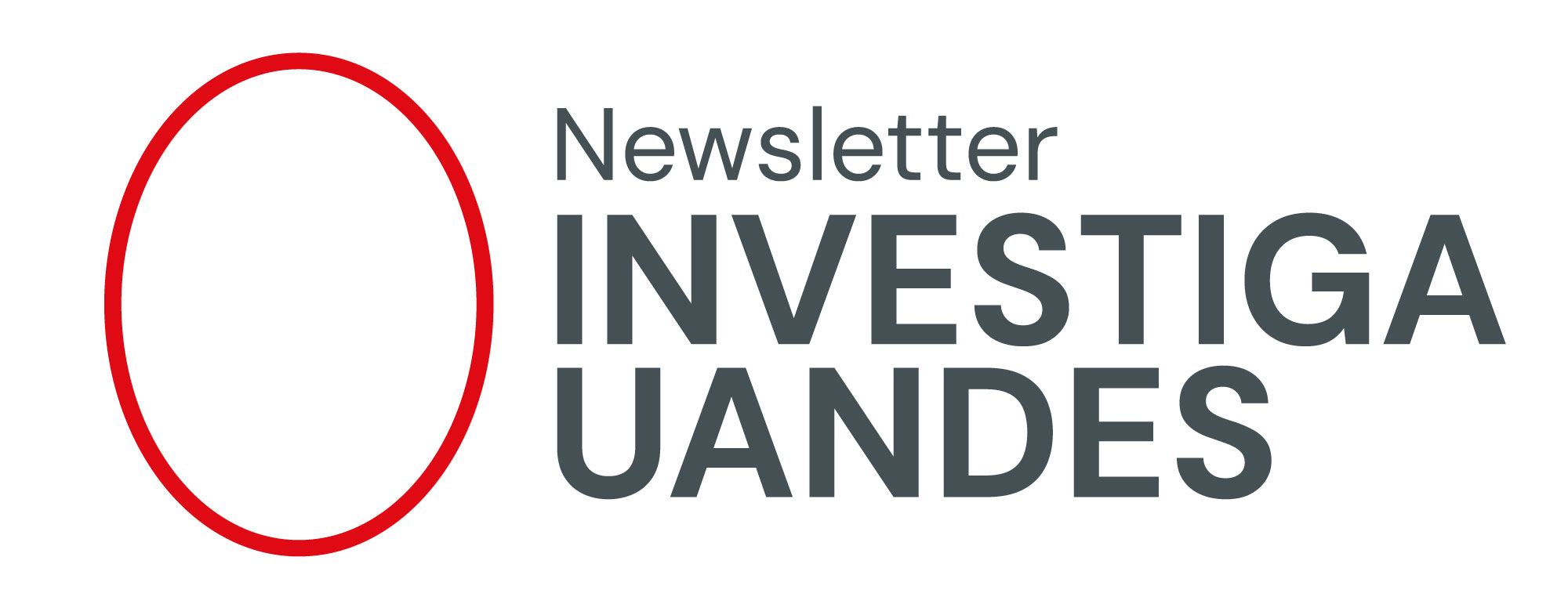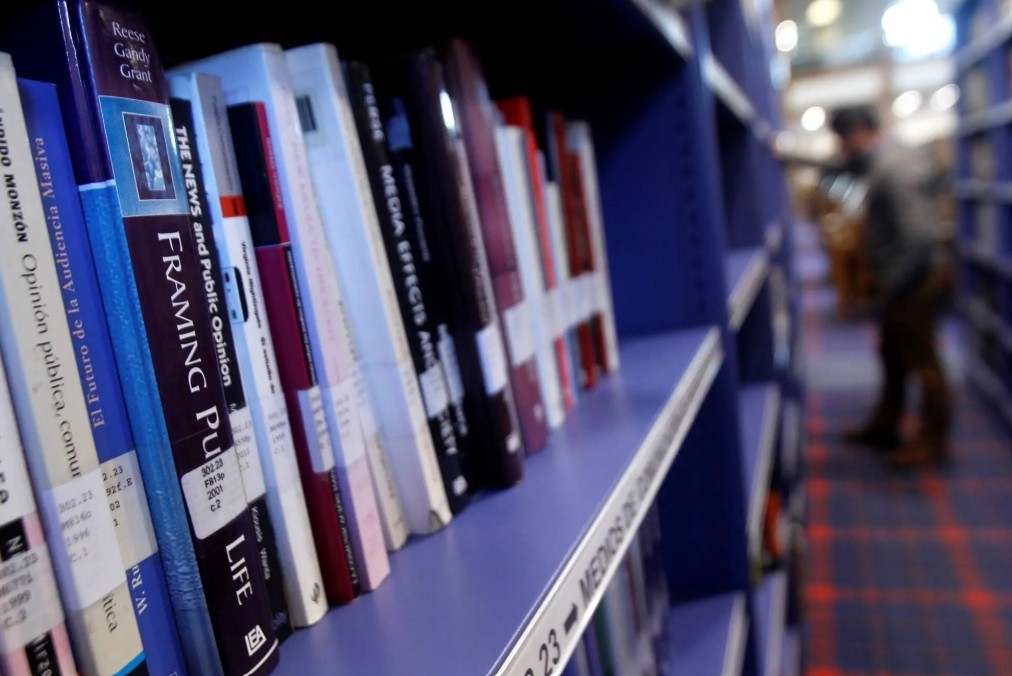Universidad de los Andes hosted the XXII Congress of the International Association of Hispanists (IAH), one of the most important academic meetings worldwide dedicated to the study of Hispanic language, literature and culture.
From July 21 to 26, 2025, Santiago de Chile hosted the XXII Congress of the International Association of Hispanists (IAH), one of the world's most important academic meetings dedicated to the study of Hispanic language, literature and culture. The event brought together nearly 500 academics from across the five continents and made the Chilean capital the second South American destination -after Buenos Aires in 2013- to host this important triennial conclave.
The 2025 edition was organized by Universidad de los Andes, together with Universidad de Chile and Pontificia Universidad Católica de Chile, with the collaboration of Real Academia Española, Instituto Cervantes and the Embassy of Spain in Chile. The activities took place at UANDES Library and at the other two host universities.
"The IAH's vocation is related to the study of language and literature in the Spanish language," explained Joaquin Zuleta, president of the Local Organizing Committee and academic of the Institute of Literature. "We are dealing with an organization that does not specifically study a single theme or period; the unifying element here was the Spanish language. For this reason, the congress brought together the Mio Cid and the Quixote with Borges, Gabriela Mistral or Armando Uribe".

The congress was inaugurated at Universidad de los Andes with a ceremony attended by rectors José Antonio Guzmán (UANDES) and Juan Carlos de la Llera (PUC), as well as the director of Real Academia Española, Santiago Muñoz Machado, and the director of Instituto Cervantes, Luis García Montero. The latter affirmed that the values of humanism "are the only remedy that can save us from the new fanaticisms that want to trample reason".
Zuleta also emphasized that the IAH congresses "vindicate the fact of doing academic research in Spanish, at least in the humanities. It does not seem right to us that researchers must validate ourselves in the English-speaking world, much less when the sources we study were originally written in our language".
During the six days, the program offered more than 120 round tables, plenary lectures, cultural activities and tributes to outstanding figures of the Hispanic world. Among those honored were Gabriela Mistral, Mario Vargas Llosa, Agustín Redondo, Margit Frenk. Additionally, there were poetry readings, a staging of La Araucana by the company Tryo Teatro Banda, and a guided tour of the National Library.
The congress addressed central issues for the study of Spanish, such as the history and evolution of the language in different cultural contexts, the challenges of teaching Spanish in the digital era, the relationship between literature and native languages, as well as the role of translation in the dissemination of knowledge. Aspects related to language policy, the preservation of linguistic heritage and the influence of Spanish in the global arena were also discussed.
When asked about the most relevant guests, Zuleta highlighted the presence of the six plenary speakers: Isabella Tomassetti (medieval literature), Mariano de la Campa (Siglo de Oro), Susana Gonzalez Aktories (Spanish-American literature), Ivan Jaksić (Andrés Bello), Carlos Garatea Grau (linguistics) and Gustavo Guerrero (contemporary literature). "It was a great opportunity to listen to professors from Instituto Cervantes and outstanding academics from Real Academia Española such as Santiago Muñoz Machado, Dario Villanueva and Aurora Egido"
Zuleta particularly valued the high national participation. "As the organizing committee we set out to convene humanities researchers in our country, and we succeeded: academics from many Chilean universities participated. Of the 500 congress participants, 30% were national researchers, which made this venue one of the most active."
IAH President, Gloria Chicotesaid that the congress is taking place in a context of permanent geopolitical crises, characterized by irrationality and, in many cases, violence. In this context, the objective is to promote the consolidation of language and culture by fostering coexistence, to facilitate the transition from philological training to the dynamics of the digital environment and to defend democratic values and mutual understanding.
The closing ceremony was held on Saturday, July 26 at Universidad de los Andes, followed by an open visit to the Cousiño Macul winery, thus concluding a week that placed Chile at the center of world Hispanism.


